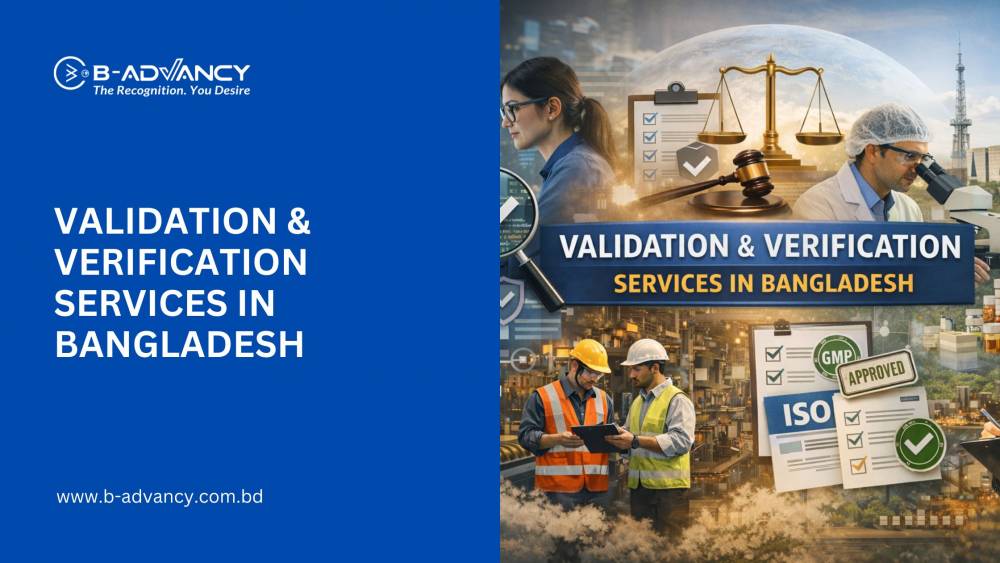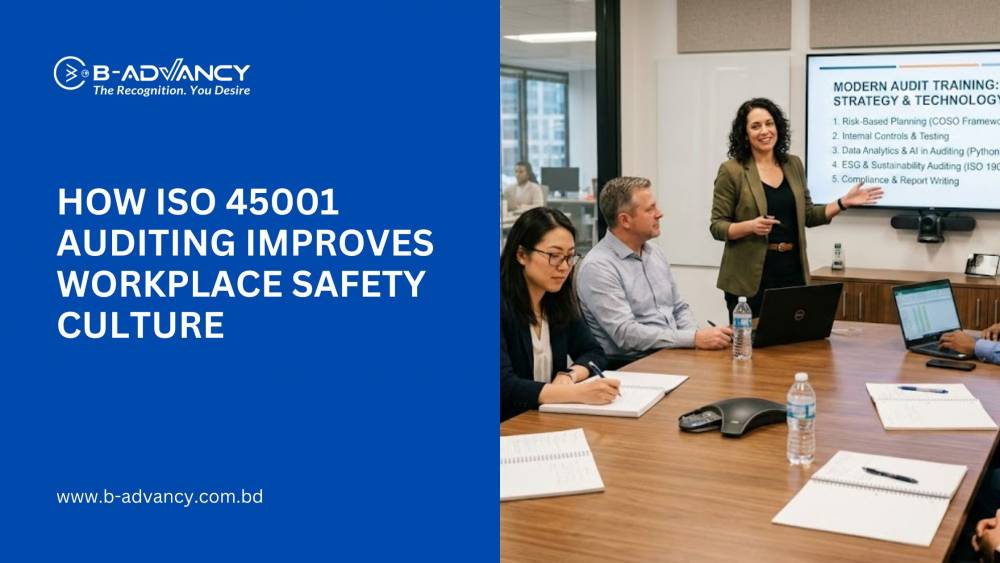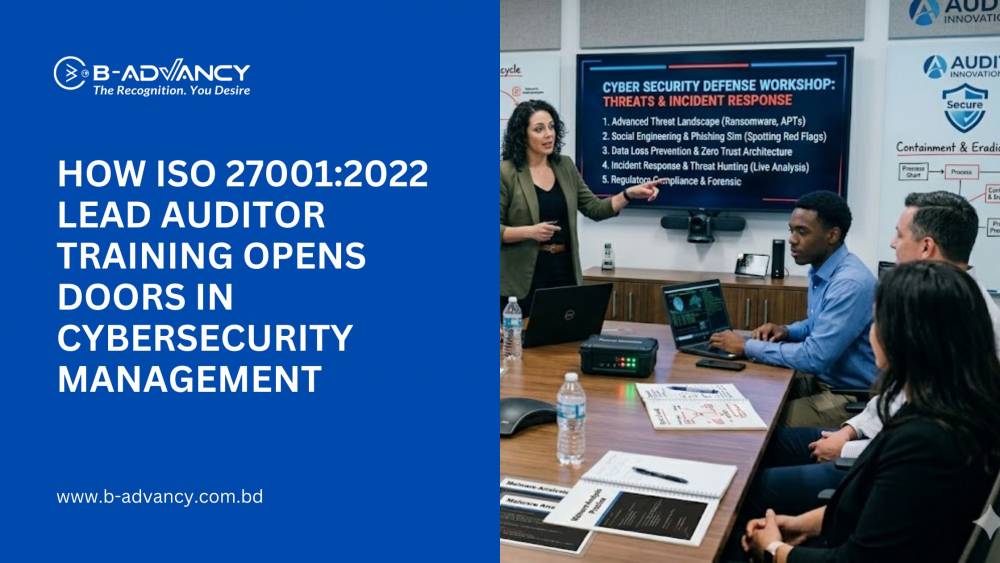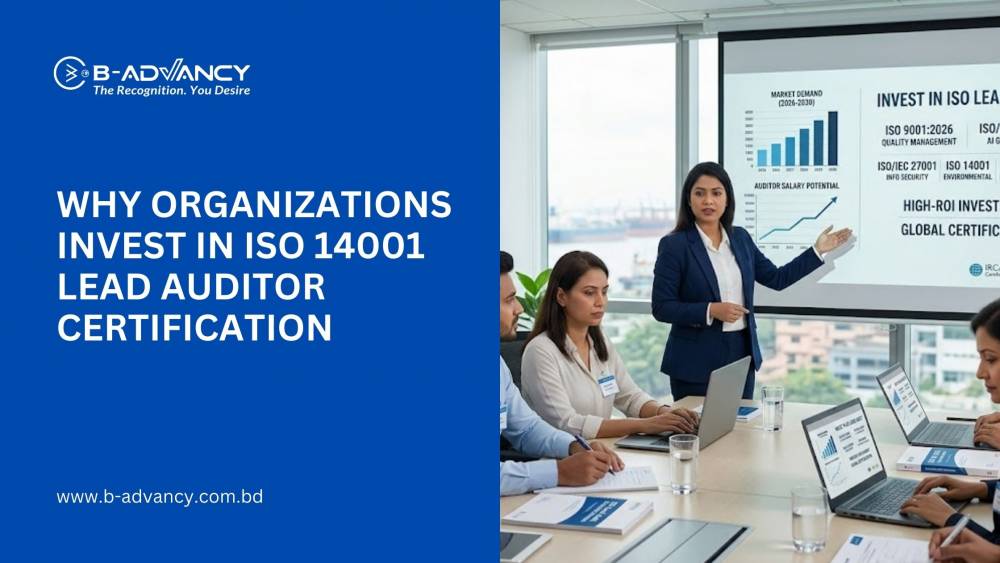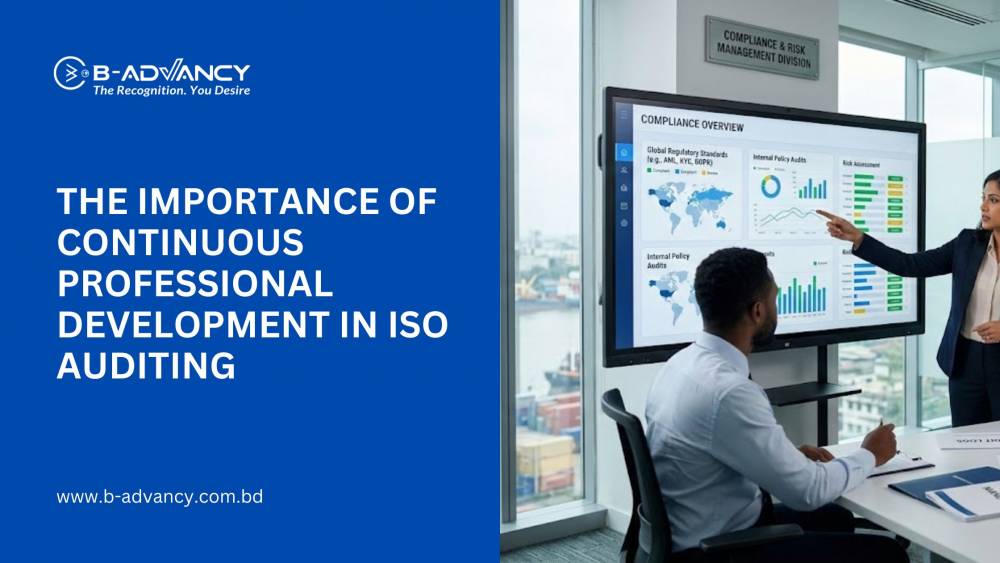The grain food milling industry in Bangladesh is a crucial part of the country’s agricultural and food processing sectors. As food safety, quality, and sustainability gain more attention globally, obtaining ISO certification can significantly enhance the credibility and operational standards of grain food mills in Bangladesh. These mills use advanced machinery to clean, grind, and refine grains such as wheat, corn, and rice, ensuring a consistent and high-quality end product. This blog will explore the importance of ISO certification for grain food mills, the benefits it offers, relevant rules and regulations in Bangladesh, and how you can start your certification journey with B-ADVANCY Certification Limited.
What is ISO Certification and Why is it Important for Grain Food Mills?
ISO (International Organization for Standardization) certification provides a set of globally recognized standards aimed at ensuring quality, safety, and efficiency across various industries, including food processing. For grain food mills in Bangladesh, ISO certification can guarantee that products meet high standards of quality and safety, helping to build consumer trust and align with both domestic and international regulations.
Grain food mills are responsible for processing essential staples such as rice, wheat, and maize. Maintaining high hygiene standards and ensuring the quality of these products is critical for both consumer health and the reputation of the business. Adopting ISO standards helps mills to control contamination risks, ensure quality consistency, and enhance their operational efficiency.
Key ISO Standards for Grain Food Mills
Several ISO standards are particularly relevant to the grain food milling industry. Here are the key ones:
-
ISO 22000:2018 - This is the food safety management system standard that ensures food products are safe for consumption. It is applicable to any organization in the food chain, including grain mills, and focuses on risk management related to food safety.
-
ISO 9001:2015 - This quality management system standard ensures that processes are in place to consistently deliver products that meet customer and regulatory requirements. For grain mills, it helps in streamlining operations and improving overall productivity.
-
ISO 14001:2015 - This environmental management system standard helps grain mills manage their environmental responsibilities, reducing waste and ensuring sustainability in their operations.
-
ISO 45001:2018 - This is an occupational health and safety management standard that protects employees from work-related accidents and illnesses. It ensures that grain mills provide a safe working environment, reducing risks of workplace hazards.
Benefits of ISO Certification for Grain Food Mills in Bangladesh
1. Enhanced Food Safety and Quality
ISO certification, especially ISO 22000, helps grain food mills establish a robust food safety management system that ensures the delivery of high-quality, contamination-free food products. This is vital in an industry where health and safety concerns are paramount.
2. Increased Operational Efficiency
ISO standards like ISO 9001 help streamline operational processes, reducing waste, minimizing errors, and improving the overall efficiency of the production cycle. For grain food mills, this translates into higher productivity and better cost control.
3. Compliance with Global Standards
ISO certification ensures that grain food mills comply with both national and international standards, making it easier to export products to global markets. This is particularly beneficial for mills looking to expand beyond Bangladesh’s borders.
4. Boost in Consumer Trust and Market Reputation
Consumers are increasingly aware of food safety and quality. Having ISO certification builds confidence among consumers and business partners, demonstrating that your mill adheres to internationally recognized best practices.
5. Environmental Responsibility
ISO 14001 ensures that grain food mills manage their environmental impact by reducing waste, conserving resources, and promoting sustainable practices. This not only benefits the environment but can also lower operational costs over time.
6. Improved Workplace Safety
ISO 45001 certification helps ensure that grain food mills provide a safe working environment, reducing accidents and illnesses among workers. This can lead to higher employee morale and lower costs associated with workplace injuries.
Bangladesh Rules and Regulations Regarding ISO Certification
In Bangladesh, the government emphasizes the importance of adhering to international standards like ISO to ensure food safety, quality, and sustainability. The Bangladesh Standards and Testing Institution (BSTI) is the national authority responsible for setting and enforcing quality standards, including those related to food processing.
The Bangladesh Food Safety Authority (BFSA) also plays a crucial role in regulating food safety across the country, ensuring that food products meet health standards. Grain food mills seeking ISO certification can benefit from aligning their processes with these national regulations, particularly in areas related to food safety and hygiene.
For further details, visit:
These institutions offer guidelines and regulatory frameworks that help businesses adhere to both national and international standards.
Steps to Achieve ISO Certification for Grain Food Mills
1. Initial Assessment and Gap Analysis
Start by evaluating your grain mill’s current processes and comparing them to the requirements of the relevant ISO standards, such as ISO 22000 or ISO 9001. This gap analysis will help identify areas for improvement.
2. Develop and Implement Management Systems
Once gaps are identified, develop a food safety or quality management system based on ISO standards. This involves documenting processes, assigning responsibilities, and setting measurable goals.
3. Internal Audit and Management Review
Conduct internal audits to ensure your systems are functioning properly. Regular reviews by management help ensure continuous improvement and readiness for external audits.
4. Choose a Certification Body
Select a reputable certification body, like B-ADVANCY Certification Limited, to conduct the external audit. They will assess whether your processes comply with ISO standards and provide guidance for any necessary improvements.
5. Achieve Certification
After successfully passing the external audit, your grain mill will receive ISO certification. This certification must be maintained through regular reviews and improvements to your management systems.
Challenges in Implementing ISO Certification
1. Cost of Implementation
Initial costs for ISO certification can be significant, particularly in areas such as employee training, system implementation, and certification audits. However, the long-term benefits in terms of operational efficiency and marketability often outweigh these costs.
2. Employee Training and Adaptation
Adopting new systems and standards requires proper employee training, which may initially meet resistance from staff accustomed to traditional processes. Providing clear communication and adequate training is essential for a smooth transition.
3. Ongoing Compliance and Maintenance
Achieving ISO certification is just the first step. Regular audits, reviews, and updates are necessary to maintain compliance, which requires ongoing effort and commitment from management and employees alike.
At B-ADVANCY Certification Limited, we provide comprehensive support throughout the certification process, from initial gap analysis to ongoing maintenance, ensuring that your grain food mill meets all ISO requirements efficiently. If you’re ready to start your ISO certification journey, contact B-ADVANCY Certification Limited today at bangladesh@b-advancy.com or call +8801612264559. We’re here to help you every step of the way.
Conclusion
ISO certification for grain food mills in Bangladesh is not only a mark of quality and safety but also a strategic advantage in a competitive market. By aligning with international standards, mills can improve operational efficiency, ensure food safety, and expand their market reach. Although the certification process may present challenges, the long-term benefits make it a valuable investment for any grain food mill looking to improve and grow.


21.jpg)




























































































































































































